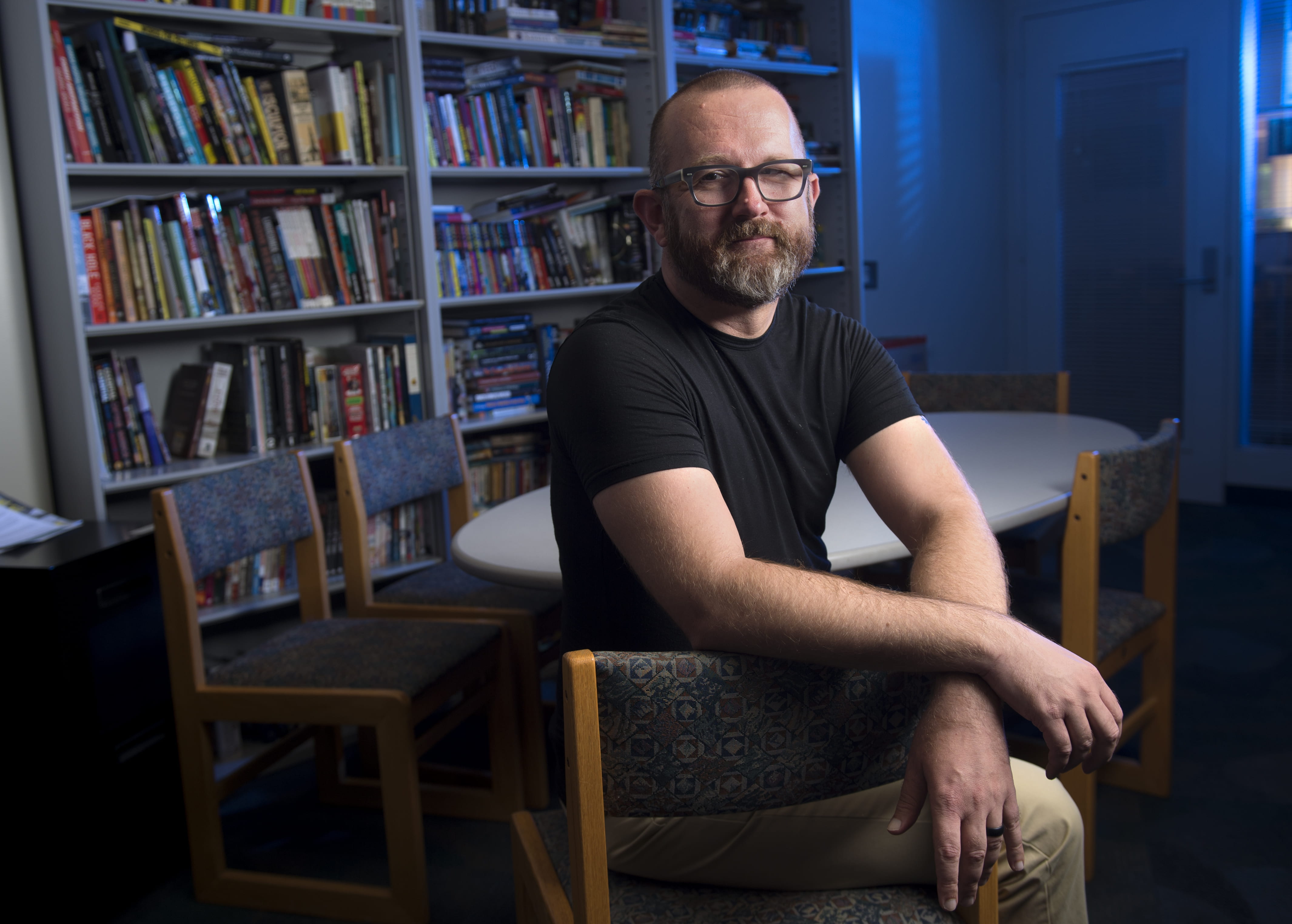A new ‘Wrinkle'
Time is right for Disney adaptation of young adult sci-fi classic, says UCI English professor

Shape-shifting spirit guides, strong young women saving the world from dark magic, and the use of science to travel between dimensions are all mainstays of today’s young adult science fiction. But in 1962, when Madeleine L’Engle published her landmark novel A Wrinkle in Time, those elements were fairly new to the emerging genre. According to UCI Chancellor’s Professor of English and YA aficionado Jonathan Alexander, L’Engle’s novel – adapted into a Disney film being released March 9 – influenced a wave of science fiction written about girls and women and is now poised to inspire a new generation.
The movie, directed by Ava DuVernay, stars Oprah Winfrey, Mindy Kaling and Reese Witherspoon. Based on L’Engle’s original work, it tells the tale of Meg Murry, a 13-year-old who travels to another dimension in which her scientist father has gone missing, endeavoring to save him from an evil entity threatening the universe.
L’Engle’s novel broke ground when it came out, not only because a female author was writing sci-fi that featured a teenage girl, but because of the protagonist’s “love of science” and “the focus on the characters’ mental and spiritual sharpness,” Alexander says. L’Engle was one of the first sci-fi writers to consider an audience beyond young boys, he adds, and to take the genre away from “westerns set in space” to explore more intellectual material.
“A Wrinkle in Time is concerned with profound questions such as ‘Why are we here?’ and ‘What does it mean to be human? To be a good person?’” Alexander says. “L’Engle was interested in the nature of our universe, and it was significant that this book followed a young girl tackling those huge concepts.”
Though modern young adult series – among them Suzanne Collins’ The Hunger Games and J.K. Rowling’s Harry Potter – also feature strong, smart female protagonists facing mature dilemmas, Alexander considers A Wrinkle in Time unique for the existential mysteries it tackles. L’Engle, he says, wrote in the same vein as George MacDonald, author of Phantastes, and C.S. Lewis, author of The Chronicles of Narnia. All heavily imbued their novels with religion and philosophy.
Alexander predicts that the Disney film might trigger a resurgence in children’s and YA literature inspired by L’Engle – addressing “the big, metaphysical questions,” focusing on science and reason, and including a diverse array of characters.
“I’m excited for longtime L’Engle readers to see this movie, but I’m especially thrilled that A Wrinkle in Time will be introduced to a new generation. I’m sure kids will go out and make fan media and start thinking about the topics L’Engle brought up,” he says.
Alexander encourages older fans to delve into the rest of L’Engle’s extensive oeuvre, which includes books for children, teens and adults. His personal favorites include A House Like a Lotus, a “stunning tale” about a teenage girl who befriends an older lesbian woman – a “very controversial and powerful story” when it was published in the 1980s. Another, A Severed Wasp, follows an elderly pianist grappling with her own past, having grown up in war-torn Europe, where she had a relationship with a Nazi soldier.
“These books are not for kids, but they deal with a similar set of strong ethical questions, some of the same ones we see in A Wrinkle in Time,” Alexander says. “L’Engle is interested in how we navigate life and its complexities. Those are the sorts of concerns that animate her writing for both children and adults.”
Overall, he hopes that the film will “re-energize” audiences to examine the themes in A Wrinkle in Time and to explore the variety of works by L’Engle, who would have turned 100 this year.
“With its incredible special effects and the star-studded lineup, this movie feels like a big event. It’s hugely important for a number of readers – not only early ones who get to see their favorite book on the big screen, but also the new ones,” Alexander says. “This will expose them to L’Engle’s fascinating writing – and to a depth of thinking that is so important in our complex world.”